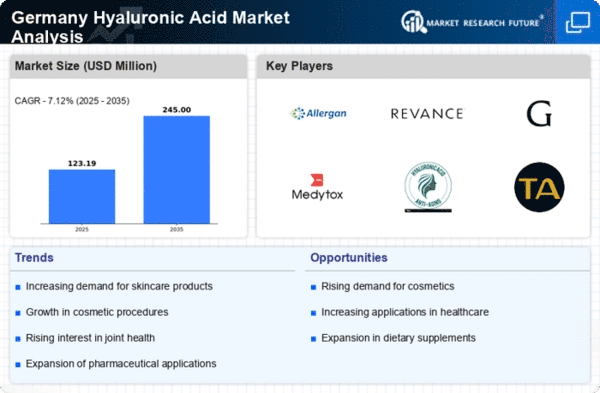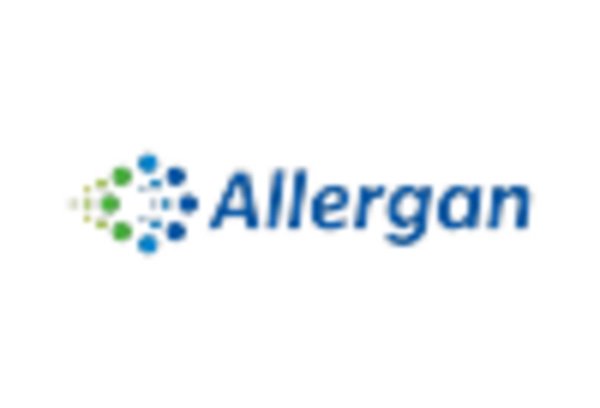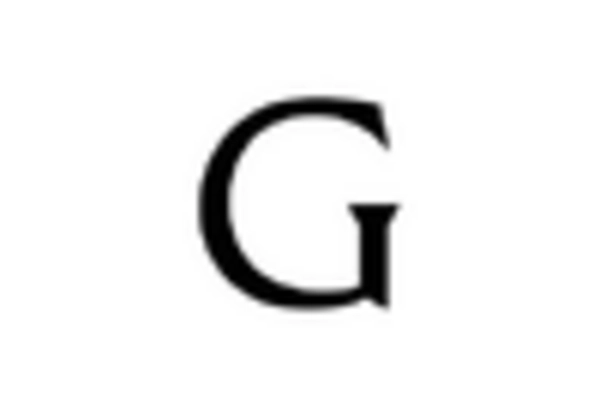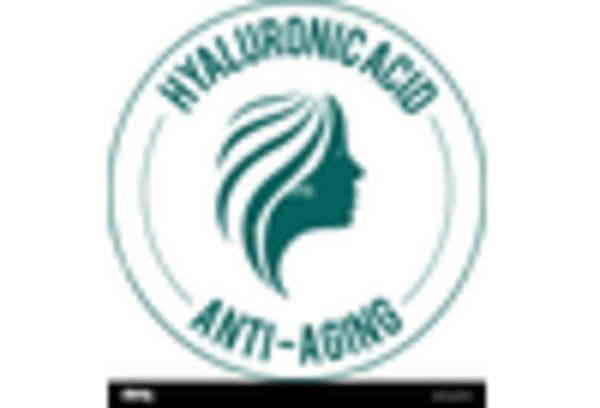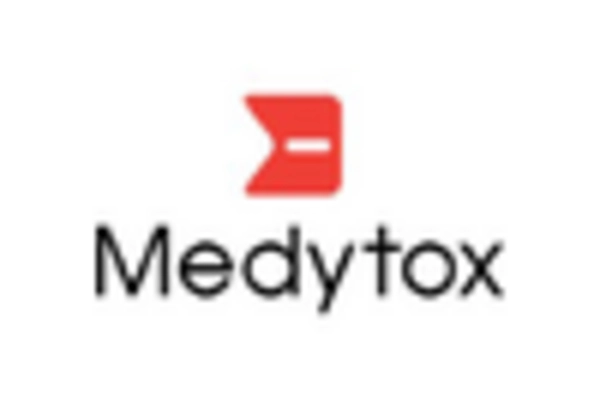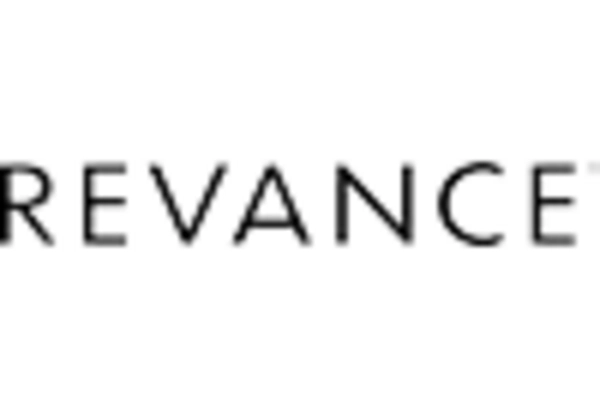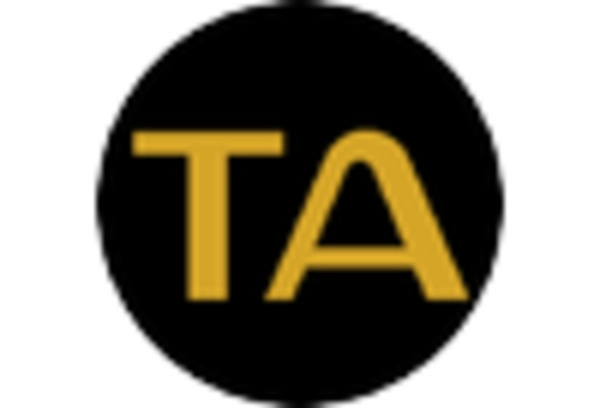Increasing Awareness of Skin Health
The rising awareness of skin health among consumers in Germany is a pivotal driver for the hyaluronic acid market. As individuals become more informed about the benefits of skincare ingredients, the demand for products containing hyaluronic acid is likely to surge. This compound is renowned for its ability to retain moisture, making it a sought-after ingredient in moisturizers and serums. The market for skincare products in Germany is projected to grow at a CAGR of approximately 5.5% from 2025 to 2030, indicating a robust interest in effective skincare solutions. Consequently, the hyaluronic acid market is expected to benefit significantly from this trend, as consumers increasingly prioritize hydration and skin elasticity in their beauty regimens.
Growth of E-commerce in Beauty Sector
The growth of e-commerce in the beauty sector is significantly impacting the hyaluronic acid market in Germany. With the rise of online shopping, consumers have greater access to a wide range of skincare products, including those featuring hyaluronic acid. E-commerce platforms provide convenience and often better pricing, which appeals to a tech-savvy demographic. The online beauty market in Germany is anticipated to grow by 10% annually, reflecting a shift in consumer purchasing behavior. This trend is likely to benefit the hyaluronic acid market, as brands increasingly invest in digital marketing strategies to reach consumers directly. The ability to showcase product benefits and customer testimonials online enhances consumer confidence, potentially leading to increased sales of hyaluronic acid-based products.
Rising Popularity of Anti-Aging Products
The increasing popularity of anti-aging products is a significant driver for the hyaluronic acid market in Germany. As the population ages, there is a growing demand for effective solutions to combat signs of aging, such as wrinkles and loss of skin elasticity. Hyaluronic acid is often highlighted for its ability to plump the skin and reduce the appearance of fine lines. The anti-aging skincare segment is projected to grow by 6% annually, indicating a strong market potential. This trend is further supported by the increasing number of beauty brands launching hyaluronic acid-infused products, thereby enhancing the visibility and accessibility of this ingredient. The hyaluronic acid market is poised to capitalize on this demand, as consumers seek out innovative formulations that promise youthful skin.
Advancements in Pharmaceutical Applications
Innovations in pharmaceutical applications are driving the hyaluronic acid market in Germany. The compound is utilized in various medical treatments, including osteoarthritis management and eye surgeries. Recent advancements in drug delivery systems that incorporate hyaluronic acid are enhancing its therapeutic efficacy. For instance, hyaluronic acid-based injections for joint pain relief have gained traction, with the market for such products expected to reach €500 million by 2026. This growth reflects a broader trend towards minimally invasive treatments, which aligns with the preferences of the German population. As the hyaluronic acid market continues to evolve, the integration of this compound into new therapeutic modalities is likely to expand its reach and application.
Regulatory Support for Cosmetic Ingredients
Regulatory support for cosmetic ingredients in Germany plays a crucial role in shaping the hyaluronic acid market. The European Union has established stringent regulations that ensure the safety and efficacy of cosmetic products, which includes those containing hyaluronic acid. This regulatory framework not only fosters consumer trust but also encourages manufacturers to innovate and develop high-quality products. As a result, the hyaluronic acid market is likely to see an influx of new formulations that comply with these regulations, thereby expanding the product offerings available to consumers. The emphasis on safety and quality is expected to drive market growth, as consumers increasingly prefer products that are backed by scientific research and regulatory approval.


